Ig Nobel win for Alpine 'goat man'
- Published
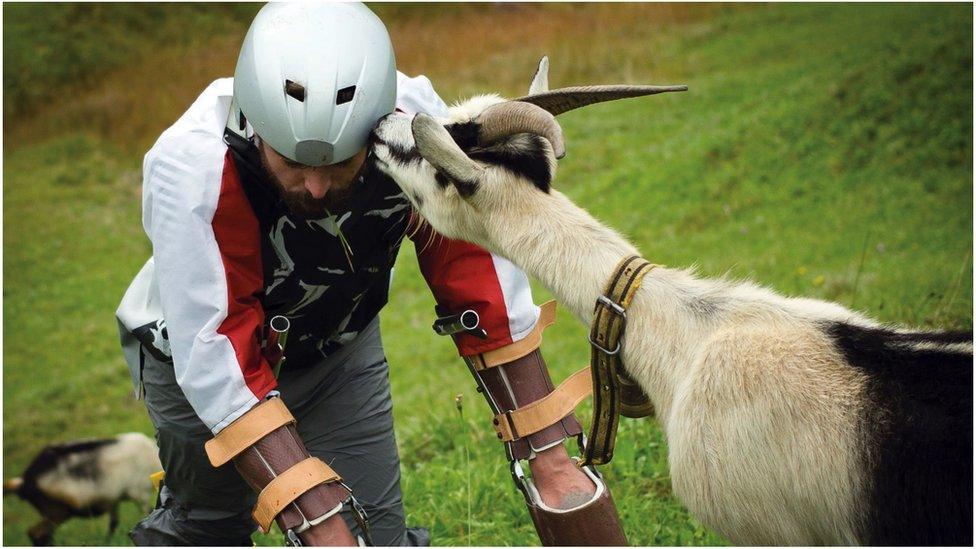
Mr Thwaites found that he soon developed "friends"
A British man who lived in the Alps as a goat for three days has won one of this year's Ig Nobel prizes.
Tom Thwaites had special prostheses made so he could walk like an animal.
The spoof awards, which are not quite as famous as the real Nobels, were handed out during their annual ceremony at Harvard University, US.
Other studies honoured during the event examined the personalities of rocks, and how the world looks when you bend over and view it through your legs.
Thomas Thwaites: 'I tried to take a holiday from being a human being by being a goat'
On the surface, all the celebrated research sounds a bit daft, but a lot of it - when examined closely - is actually intended to tackle real-world problems.
And nearly all of the science gets published in peer-reviewed, scholarly journals.
It is unlikely, though, that the German carmaker Volkswagen will appreciate the point or humour of the Ig Nobels.
The firm has been awarded the chemistry prize for the way it cheated emissions tests.
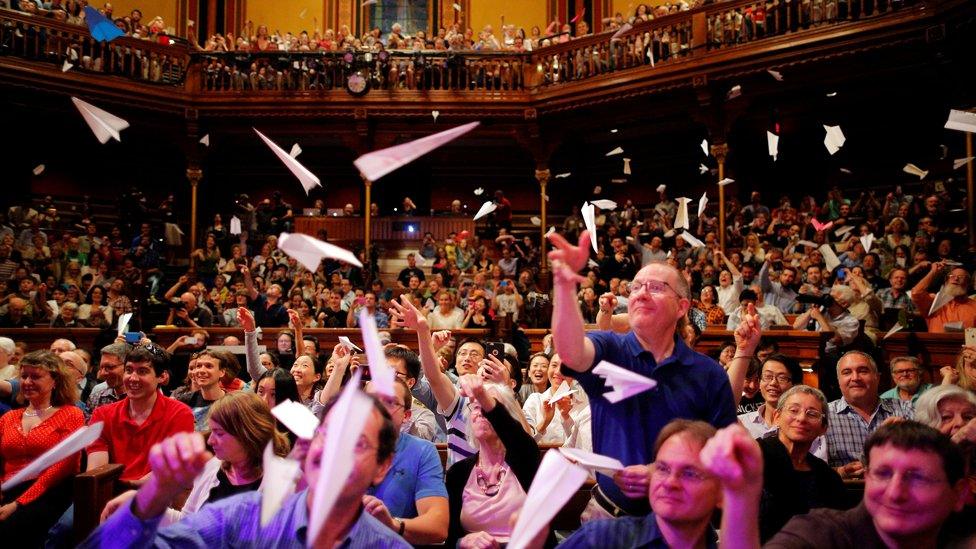
Paper planes are all part of the fun
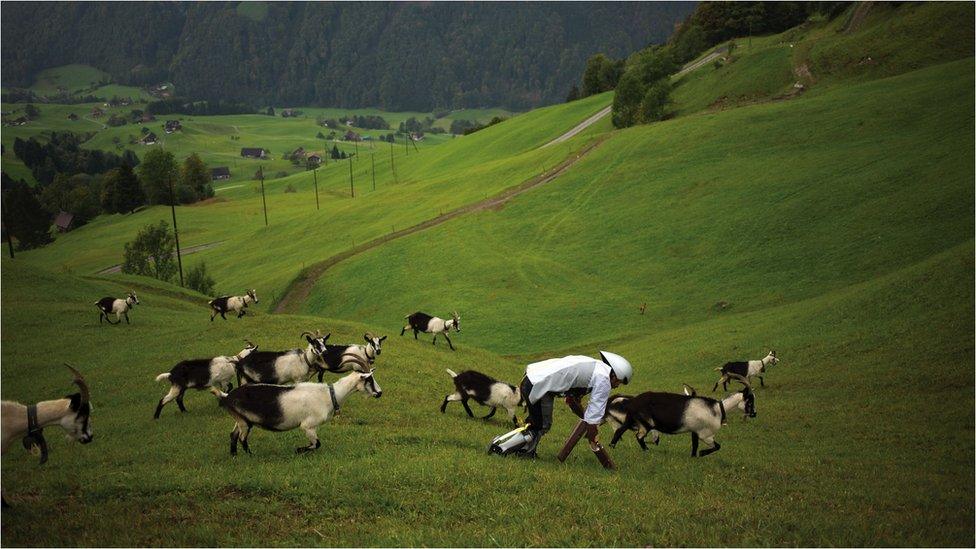
Mr Thwaites very nearly got into a fight
Goat-man Tom Thwaites, external actually shares his biology prize with another Briton, Charles Foster, external, who also has spent time in the wild trying to experience life from an animal's perspective.
Clearly, the practice is fast-becoming a national trait.
Mr Thwaites concedes his effort was initially an attempt to escape the stress of modern living, but then became a passion.
He spent a year researching the idea, and even persuaded an expert in prostheses, Dr Glyn Heath at Salford University, to build him a set of goat legs.
Watch Thomas Thwaites in action
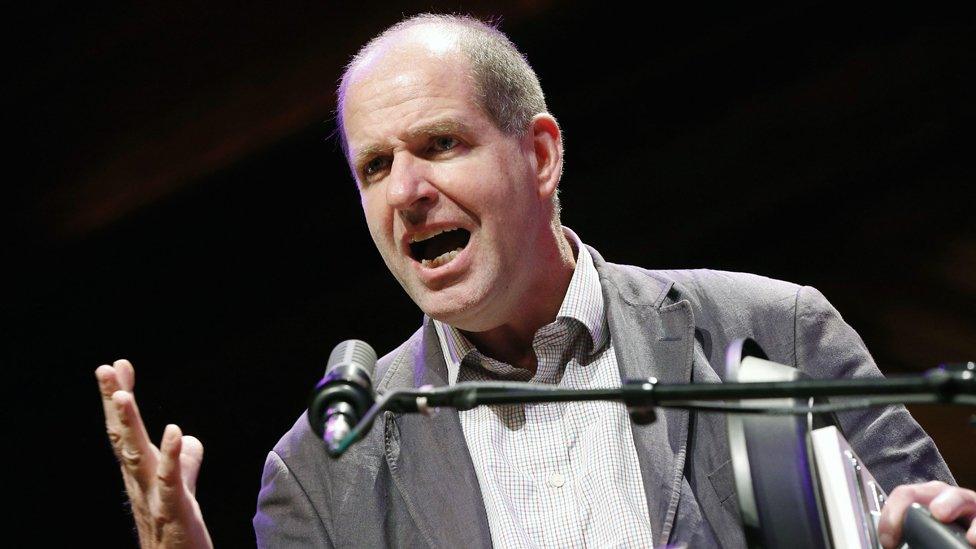
Charles Foster has lived variously as a badger, an otter, a deer, a fox, and a bird
Fascinating, if a little bizarre on occasions, was Mr Thwaites' verdict on the whole venture. He developed a strong bond with one animal in particular - a "goat buddy", but also very nearly kicked off a big confrontation at one point.
"I was just sort of walking around, you know chewing grass, and just looked up and then suddenly realised that everyone else had stopped chewing and there was this tension which I hadn't kind of noticed before and then one or two of the goats started tossing their horns around and I think I was about to get in a fight," he told BBC News.
The American science humour magazine, the Annals of Improbable Research, external, is the inspiration behind the Ig Nobels, which are now in their 26th year.
Thursday night's ceremony, external was reportedly as chaotic as ever, with audience members throwing the obligatory paper planes while real Nobel laureates attempted to hand out the prizes.
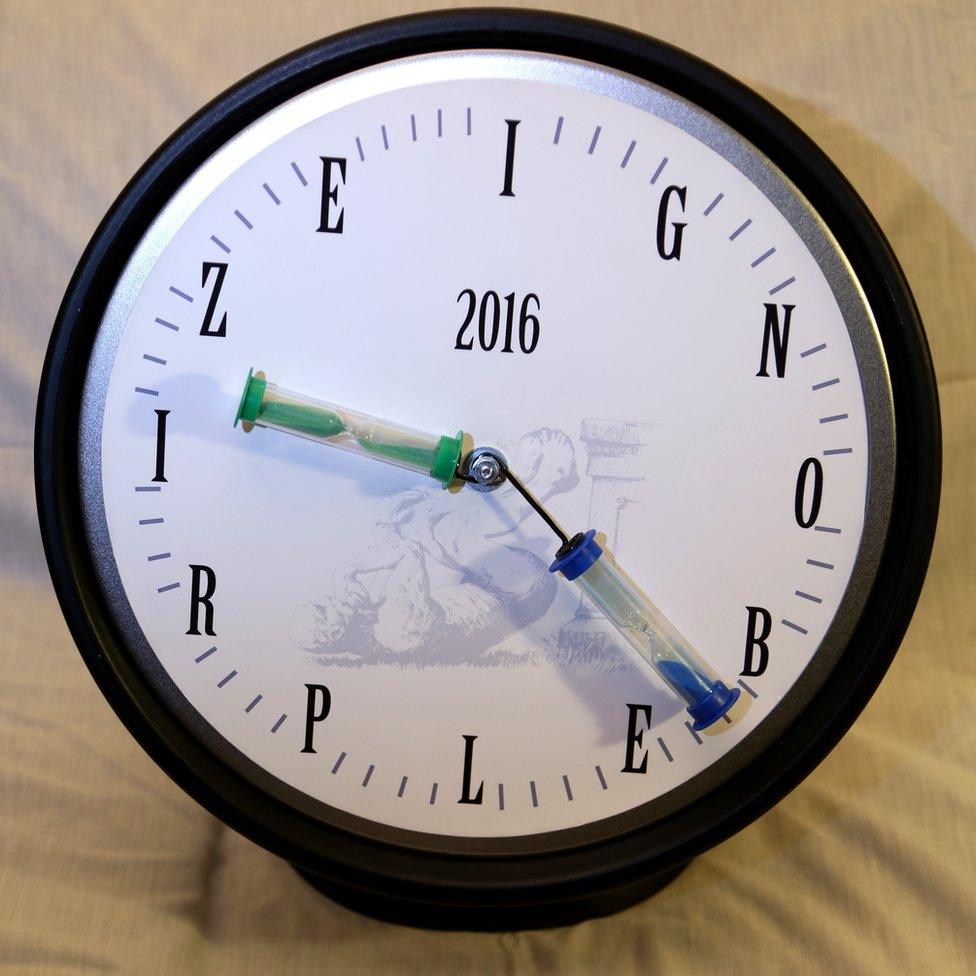
A time of celebration: The 2016 Ig Nobel Prize

The full list of winners, external announced at Harvard's Sanders Theatre:
Reproduction Prize - The late Ahmed Shafik, for testing the effects of wearing polyester, cotton, or wool trousers on the sex life of rats.
Economics Prize - Mark Avis and colleagues, for assessing the perceived personalities of rocks, from a sales and marketing perspective.
Physics Prize - Gabor Horvath and colleagues, for discovering why white-haired horses are the most horsefly-proof horses, and for discovering why dragonflies are fatally attracted to black tombstones.
Chemistry Prize - Volkswagen, for solving the problem of excessive automobile pollution emissions by automatically, electromechanically producing fewer emissions whenever the cars are being tested.
Medicine Prize - Christoph Helmchen and colleagues, for discovering that if you have an itch on the left side of your body, you can relieve it by looking into a mirror and scratching the right side of your body (and vice versa).
Psychology Prize - Evelyne Debey and colleagues, for asking a thousand liars how often they lie, and for deciding whether to believe those answers.
Peace Prize - Gordon Pennycook and colleagues, for their scholarly study called "On the Reception and Detection of Pseudo-Profound Bullshit".
Biology Prize - Awarded jointly to: Charles Foster, for living in the wild as, at different times, a badger, an otter, a deer, a fox, and a bird; and to Thomas Thwaites, for creating prosthetic extensions of his limbs that allowed him to move in the manner of, and spend time roaming hills in the company of, goats.
Literature Prize - Fredrik Sjoberg, for his three-volume autobiographical work about the pleasures of collecting flies that are dead, and flies that are not yet dead.
Perception Prize - Atsuki Higashiyama and Kohei Adachi, for investigating whether things look different when you bend over and view them between your legs.

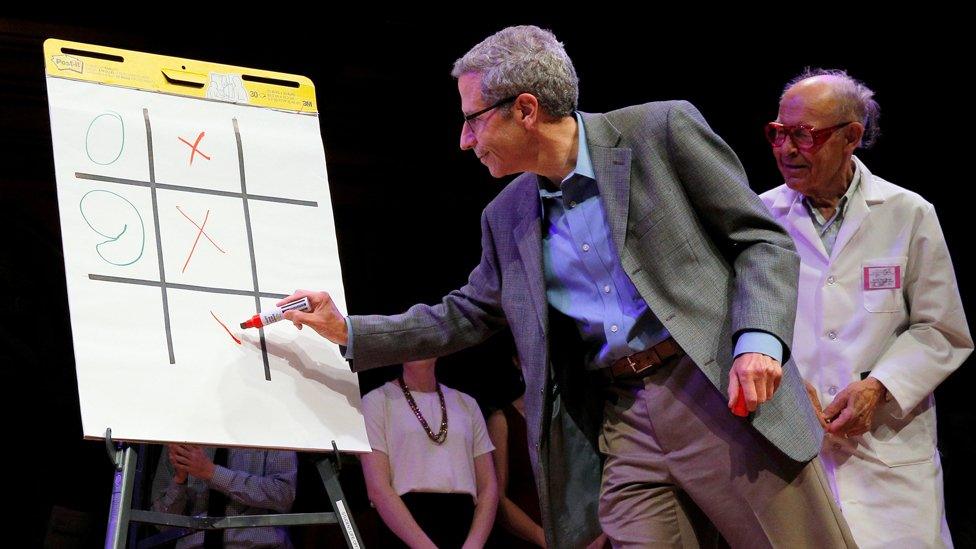
Nobel Laureates Eric Maskin and Dudley Herschbach play "Tick-Tac-Toe" ("Noughts and Crosses")
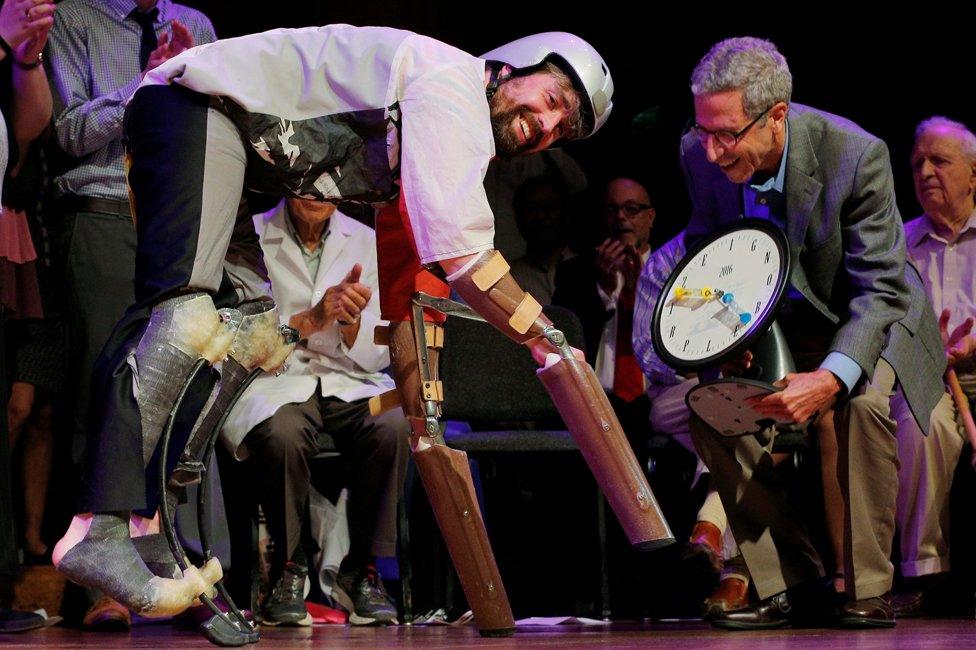
For those who cannot abide this sort of nonsense, the real Nobel Prizes, external are handed out the week after next.
Jonathan.Amos-INTERNET@bbc.co.uk, external and follow me on Twitter: @BBCAmos, external
- Published16 May 2016
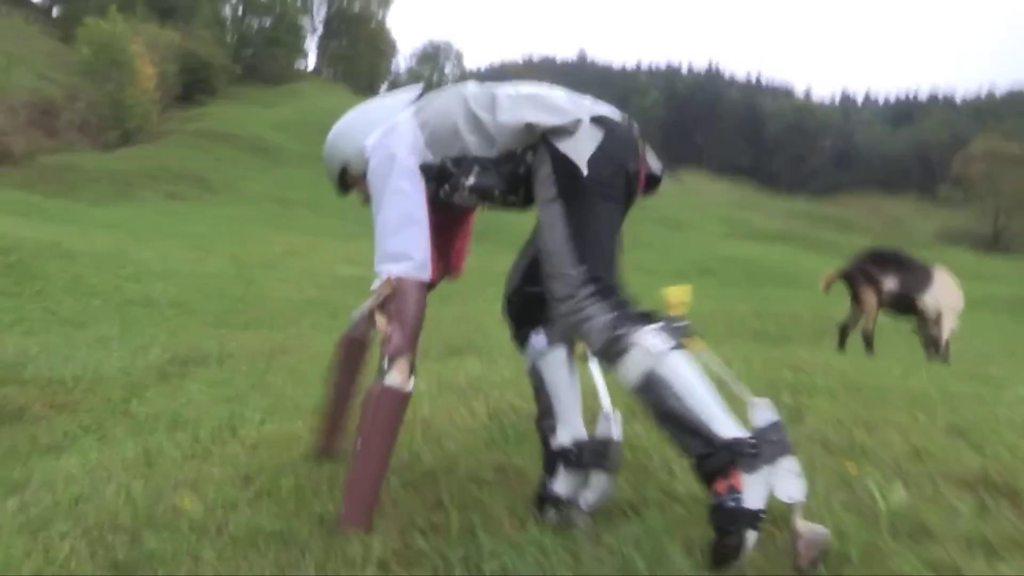
- Published18 September 2015
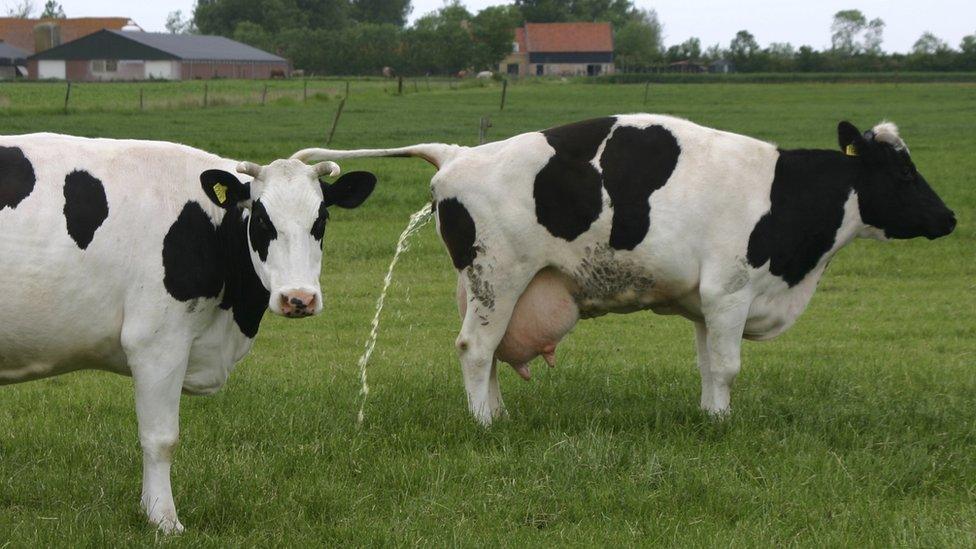
- Published19 September 2014
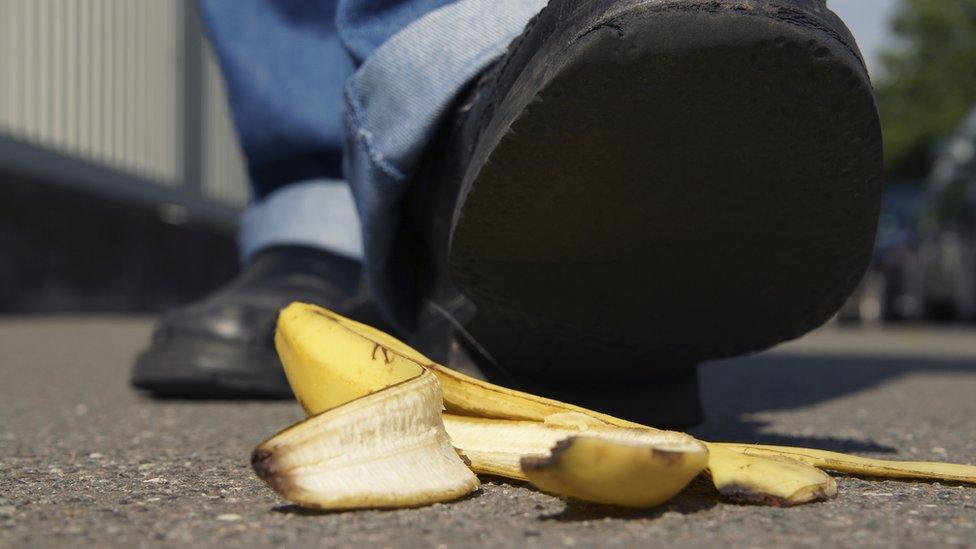
- Published13 September 2013

- Published21 September 2012
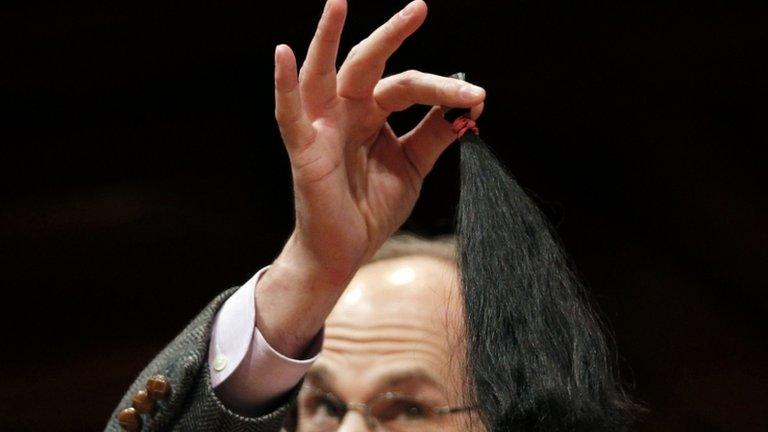
- Published30 September 2011
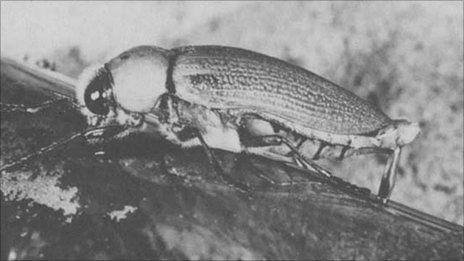
- Published1 October 2010